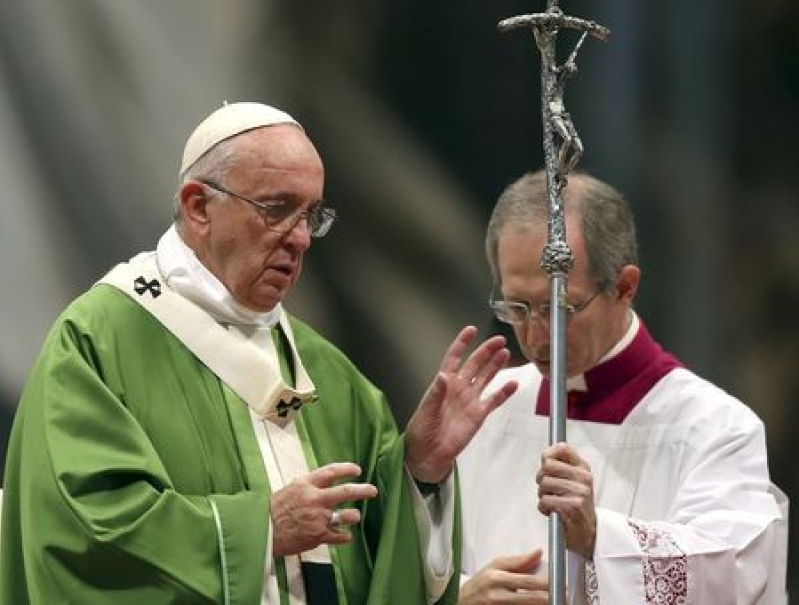
Roman Catholic bishops have agreed after three weeks of closed-door debate at the Vatican to soften their line towards divorced couples, a leading participant said, but not to relax the Church's strict doctrine on homosexuality.
The outcome of the gathering, known as a synod and presided over by Pope Francis, appeared to mark a victory for conservatives and a failure for reformers who had hoped for more inclusive language towards gays.
The final document from the meeting was due to be released later on Saturday.
"It is a document of consensus. You will not find much about homosexuality in this document. Some people will be disappointed," Cardinal Christoph Schoenborn of Vienna told a news conference
He said the document spoke of homosexuals only in the context of families that have a gay member and how to "manage this situation as Christians ... that is all that has remained about homosexuality".
On the other hand, he said, it would offer hope for the full re-integration into the Church of some divorced and remarried couples.
His comments indicated that the assembly had decided to avoid controversial language in order to avoid deadlock on the most sensitive topics, leaving it up to the pope to deal with them in a future document.
"TOO DELICATE"
During the synod, some bishops said the 1.2 billion-member Church should use introduce welcoming and inclusive language regarding homosexuals.
But Schoenborn said many of the 270 bishops felt homosexuality was still "too delicate a theme" in their countries. During the meeting, African bishops were particularly adamant in their opposition to welcoming language regarding homosexuals, saying it would only confuse the faithful.
"This does not mean that it is not an important topic for the Church in Europe and North America, but on a universal level, you have to respect political and cultural situations," he said.
At a preliminary meeting a year ago, conservative clerics made sure an interim report deleted a passage they thought was too welcoming to gays.
Schoenborn, who is a progressive, said the synod document would effectively re-state Church teaching that while homosexual tendencies are not sinful, homosexual acts are.
"The doctrine is clear," Schoenborn said. "And there is no need to repeat it."
Another contentious topic discussed at the synod was how to minister to the large number of Catholics with failed first marriages who have divorced and remarried in civil ceremonies.
Under current Church doctrine they cannot receive communion unless they abstain from sex with their new partner because their first marriage is still valid in the eyes of the church and they are seen to be living in an adulterous state of sin.
Some bishops said that the doctrine could be modified so that priests or bishops could give individual Catholics permission to receive communion after personal spiritual counseling.
Schoenborn suggested that the final document would offer some opening to such couples on a case-by-case basis.
"It gives the fundamental criteria for the discernment of situations. This is the most important point. Seeking a yes or no answer is a false question because various situations are so different," he said.
This appeared to be a qualified victory for progressives. Conservatives said there should be no change in church doctrine because it would violate Jesus' teaching that marriage is indissoluble.






